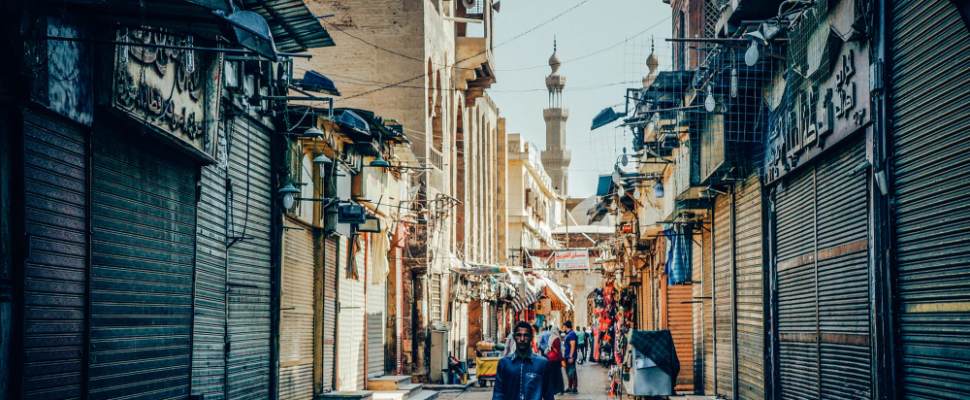The 100 Million Seha (100 Million healthy lives) campaign, which kicked off on a national scale in October 2018 under the auspices of President Abdel Fattah El-Sisi, aims to detect and eliminate Hepatitis C in Egypt by 2023. The ground-breaking initiative, organized by the Ministry of Health and Population, has been hailed as one of a kind in some quarters, and has seen the participation of millions of Egyptians across the country.
I do not think any other country in the world has managed to screen this number of citizens for Hepatis C
Amgen’s managing director Ahmed Mostafa confirms that “the campaign has been a great success due to the availability of the tests, which have been available free-of-charge in hospitals and even malls all over the country. Hepatitis C was a major problem in Egypt five years ago, which was very difficult to eradicate with medication at that time. However, the scientific progress has made better treatment options available, which also increased the interest of the government to screen citizens and provide the treatment needed to fight the disease.”
The initiative has been split into three parts with the first phase taking place in October and November 2018 in nine governorates, screening 13 million citizens. The second phase lasted from December 2018 until February 2019 in eleven governorates screening 17 million citizens. Ultimately, the third stage launched in March 2019 and aims to test more than 23 million citizens, including foreigners and refugees residing in Egypt. Underlining the extent of the campaign, Emad Graiss, managing director North East Africa at Merck, calls 100 Million Seha a phenomenal step: “I do not think any other country in the world has managed to screen this number of citizens for Hepatis C.”
Indeed, Hepatitis C is considered one of the most vicious health problems in Egypt. The WHO found that Egypt had the highest prevalence of Hepatitis C in the world in 2015, with 22 percent of Egyptian blood donors tested positive for the disease. Overall, in 2016 it was estimated that prevalence of HCV in the country is between 4.5 and 6.7 percent. The use of unsterilized injections first caused the virus to surface in Egypt in the 1950s.
Magicpharma’s CEO Sherif Rashed is however quick to highlight that “screening campaigns like 100 Million Seha do not only have the purpose of eradicating Hepatitis C, but also to see which other diseases have a high prevalence in the country, in order to approach them in the right way.” Apart from diagnosing Hepatitis C, Sanofi’s chairman and managing director Christelle Saghbini confirms that “the 100 Million Seha campaign has rightly screened chronic diseases like Hepatitis C, diabetes, hypertension and obesity, as we have a quite high prevalence of these diseases in Egypt.” Hence, Merck’s Emad Graiss is very hopeful about the campaign’s results, which will “be very rewarding for both the government and the industry, as the magnitude of medical data generated through such an initiative is incredible.”
While screening results of the full initiative are not available yet, data from the first two phases has already been published. Minister of Health HE Dr Hala Zayed confirmed the tests revealed that 4.5 percent of the examined citizens as part of the campaign’s first phase tested positive for Hepatitis C. Looking at the Cairo metropolitan area in particular, the first two phases showed a prevalence of three percent for Hepatitis C, six percent for Diabetes and 27 percent for hypertension.
Although the campaign had for goal to detect and treat 50 million then 100 million, its current target is still considered a partial success. Nevertheless, former Minister of Health, Prof. Dr. Adel Adawy, highlights that to be able to announce the absolute eradication many more steps are needed. “This goes beyond the production and prescription of medication, but mainly is about reducing the number of new persons infected with the virus. This cannot be achieved easily, as it requires a fully elaborated infection control strategy and identifying the main obstacles remaining. While screening people as part of the 100 Million Seha is important, first improvements in the blood transfusion centers need to be made and safer injections methods need to be adapted, to be able to eradicate the disease,” he explains.
Considering the accomplishment of screening more than 45 million citizens, Egypt has also welcomed several international officials and representatives, who showed great interest in the governmental campaign. “We are looking to convey the Egyptian experience to stop Hepatitis C in other countries around the world, including throughout Africa”, said the World Bank’s health and nutrition manager for the Middle East North Africa Region, Ernest Massiah, during a visit to Cairo.
Consequently, in January 2019, Minister of Health HE Dr Hala Zayed revealed an Egyptian initiative to treat African people with Hepatitis C, starting with the Nile Basin countries which have an estimated 3.7 million hepatitis C patients, representing 30 percent of the total number of infected people in Africa.


